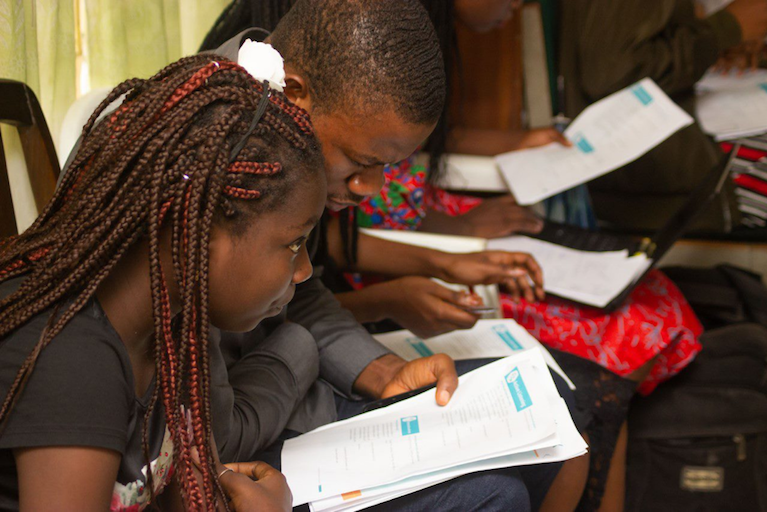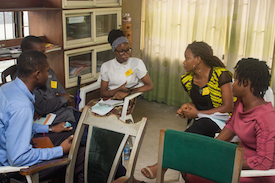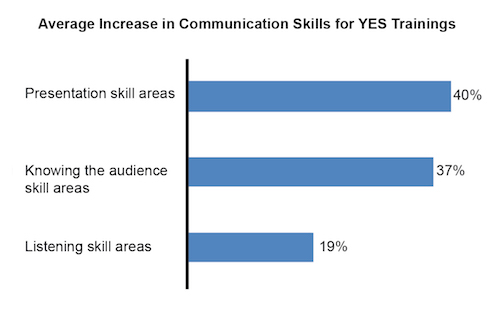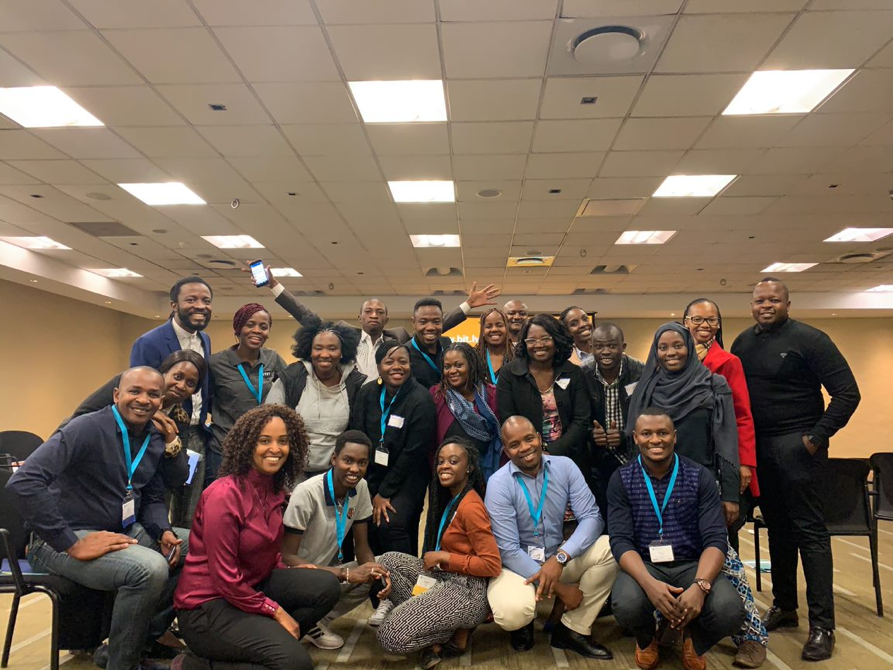Young African leaders equip youth in 12 countries with skills for workforce success

In the next 20 years, unprecedented demographic changes will result in youth making up 60% of Africa’s population. Youth have the potential to play critical roles as protagonists and workers who shape the future of their regions, but they must be equipped with the right skills to thrive. Twelve young leaders and Mandela Washington Fellowship Alumni recognized this need and leveraged an opportunity to help youth in their communities develop skills to thrive in the 21st century.
The young leaders completed IREX’s Training of Trainers for the Youth Essential Skills (YES) Toolkit to become ‘YES Champions.' Within 3 months, they delivered trainings to 273 youth in Angola, Cameroon, Comoros, Democratic Republic of Congo, Eswatini, Lesotho, Liberia, Mali, Niger, Nigeria, Zambia, and Zimbabwe.
The Youth Essential Skills Toolkit focuses on ten essential soft skills that IREX has identified as key for youth to thrive at work, at school, and in their communities; communication, collaboration, higher order thinking, adaptability, entrepreneurial thinking, interdisciplinarity, resilience, positive self-concept, inclusiveness, empathy. The curriculum is adaptable for diverse purposes and contexts – to improve workforce and employability outcomes, to develop leaders, and enhance youth resilience.
The YES Champions learned how to implement trainings where participants developed their communication skills through practice and experiential learning. The Training of Trainers also introduced strategies to make trainings inclusive and learner-focused by applying positive youth development and gender and social inclusion principles.

The value of soft skills trainings in Africa
In Cameroon, in trainings led by Javnyuy Joybert the training focused on a diverse group of entrepreneurs, university students, and graduates. Despite having different backgrounds and interests, these trainees found that developing strong communication skills was a universal need. According to Brookings, communication skills are in critical demand, particularly across Africa.
YES Champion Mphiwa Gamedze recognized the value of implementing his training in Eswatini. He shared, “Communication plays a major role in entrepreneurship development, and the process of delivering YES [trainings] encourages the participants to be the architects of their own development.”
Youth-led efforts ensure relevance and adaption for local needs
The YES Training of Trainers equipped youth leaders to self-organize and bring a skill development opportunity for other youth in their community. While the youth-led model was highly effective and positioned YES Champions to be protagonists who contribute positively to their communities; it also required them to adapt the training to local needs in order to ensure success.
In some countries, the training had to be translated from English into other language. With thousands of languages across Africa, translating skills trainings is critical to ensure relevance and success. Zambian YES Champion Catherine Sakala emphasized that it was important for youth to develop communication skills while incorporating relevant techniques aligned with cultural expectations. She explained, “Traditional leaders cannot be addressed the way you would a colleague, and eye contact in some instances is considered disrespectful.”
Beyond skills: Applying training principles
YES Champions applied training principles to create positive learning environments paying close attention to positive youth development and gender and social inclusion considerations. Sakala thought critically about incorporating gender and social inclusion in her Zambia training so that youth of all identities felt safe to participate before, during, and after the training. “I was worried about making sure differently abled participants were comfortable to participate,” she said. “One of the things that helped was being aware of the diverse group I had and also anticipating the help they would need even as I was organizing the training.”

Impact of communication training on youth
YES Champions training increased the communication skills of their participants. For the subskills of communication —listening, understanding their audience, and presenting information—participants showed gains in skills. Across the continent, youth trainees displayed a 19% increase in listening, 37% increase in understanding their audience, and 40% increase in presenting information.
While increasing communication skills is an important step toward preparing Africa’s youth for the opportunities and challenges of the future, participants and trainers recognize that one training is just the beginning of a long road. For long-term outcomes in youth skill development, youth require more opportunities to learn, practice, and reflect on their skills. YES Champions are poised to address this need by continuing to offer such opportunities in their communities.
YES Champions included Javnjuy Joybert, Chibuzor Agomuoh, Ndongui Jean Precylhya, Thobekile Matimbe Ogaufi, Boubou Sangho, Alfredo do Rosario Capitamolo, Mpho Motsamai, Halima Laoual Bachir, Catherine Sakala, Massoundi Soilihi, Mphiwa Gamedze, and Mercy N. Flomo.
